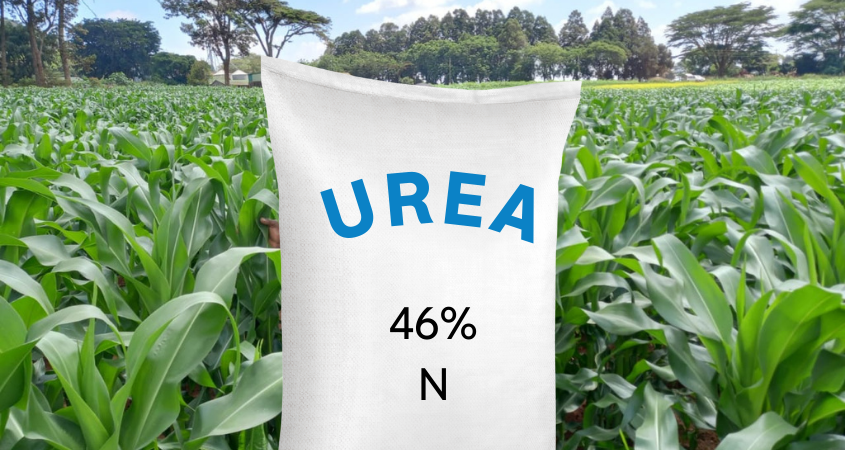
Did you know that urea is one of the most widely used nitrogen fertilizers globally? Let’s explore why urea is essential for optimizing crop nutrition and boosting agricultural productivity:
Urea fertilizer is produced through a controlled reaction of ammonia gas (NH3) and carbon dioxide (CO2) under specific temperature and pressure conditions. The resulting molten urea is formed into spheres or solid prills using specialized granulation equipment.
Urea’s chemical formula is CO(NH2)2, with an impressive 46% nitrogen content. It boasts high water solubility (1,080 g/L at 20°C), making it versatile for various application methods.
Urea is applied directly to soil or dissolved in water for surface application. Upon contact with soil, urea undergoes hydrolysis mediated by the enzyme urease, converting it into ammonium (NH4+) and nitrate (NO3-) forms, which plants readily absorb for growth.
While urea is highly soluble and moves with rainfall or irrigation into the soil, careful management is crucial to minimize nitrogen losses, ensuring maximum nutrient efficiency and reducing economic losses.
Urea quality is essential for ensuring the efficacy, safety, and economic sustainability of urea fertilizers. Quality testing involves rigorous analysis of urea to verify its purity, nitrogen content (typically 46% N), and absence of heavy metal contaminants like mercury, lead, and arsenic.
In conclusion, the success of urea fertilizers in optimizing crop yields hinges on quality assurance throughout the production and distribution process. By prioritizing proper management practices and stringent quality control measures, farmers and agronomists can deliver reliable nutrient availability to plants while minimizing the risk of economic loss.
For personalized assistance on fertilizer quality assurance and testing, please reach out to our experts at support@cropnuts.com.
Grow more with less
#savesoil #soilhealth #soilscience
Order our services and get to know how to improve your soil for better yeilds.